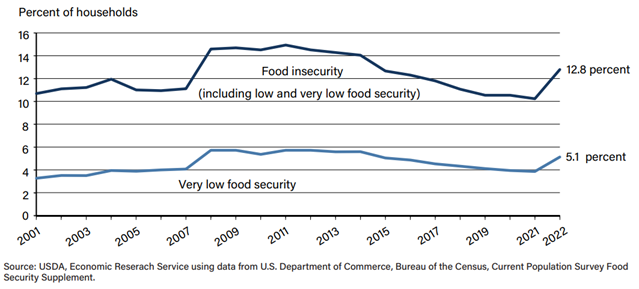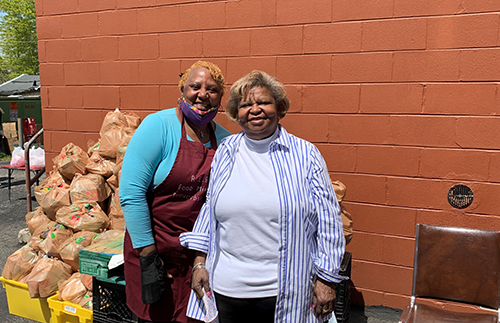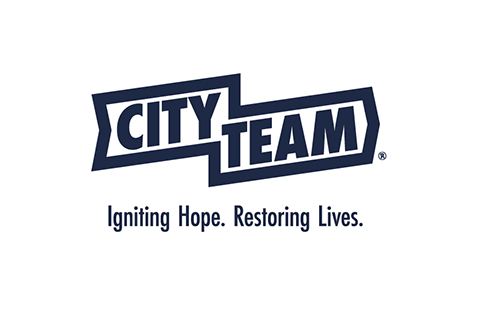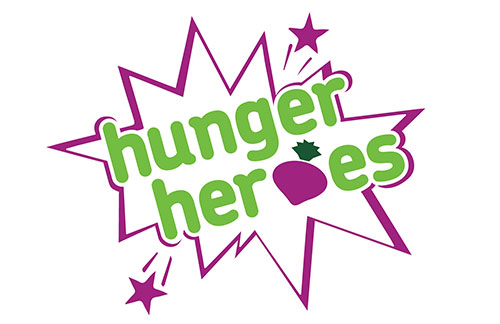The U.S. Department of Agriculture (USDA) recently released their annual Household Food Security Report, revealing national food insecurity rates for 2022. We learned that 44.2 million people, including over 13 million children, lived in food insecure households – an increase of over 10 million people from the year prior. The overall food insecurity rate rose drastically from 10.2% (1 in 10 households) in 2021 up to 12.8% (1 in 8 households) in 2022. This is the highest national food insecurity rate since 2014, and the highest one-year increase since the 2008 Great Recession.
The USDA Report found that food insecurity increased in every studied demographic: every household size and composition, every race and ethnicity, every gender, every age. While food insecurity increased across the board from 2021 to 2022, children and people of color face an especially disproportionate burden. Nearly 1 in 5 children live in food insecure households – a sharp 44% increase from the year prior. Black and Hispanic people were food insecure at more than double the rate of White people, with 22.4% of Black households and 20.8% of Hispanic households experiencing food insecurity, compared to 9.3% of White households.
Philabundance is deeply concerned but not surprised by these numbers. They reflect what we and our partners have been witnessing firsthand: growing demand for emergency food assistance as pandemic-era government supports ended and cost of living (particularly food) soared. In fact, Feeding America estimates that 1 in 6 people turned to food banks in 2022. The steep rise in food insecurity also unsurprisingly mirrors the historic rise in poverty reported last month, as poverty is a root cause of hunger. The annual Census Poverty Data found that the national poverty rate increased from 7.8% to 12.4% – a 60% increase – from 2021 to 2022.

This sobering increase in food insecurity underscores the critical role of food banks like Philabundance, as well as the necessity of strong government investments in anti-hunger programs and policies. In 2021, we saw food insecurity decrease as a direct result of pandemic-relief efforts and robust federal investments in the social safety net. Many of these government supports that existed in 2021 ended in 2022, like the highly effective Child Tax Credit. The loss of critical pandemic-era interventions coupled with rising costs of living have contributed to the soaring hunger we see today. We fear that we will continue to see hunger rise again in next year’s 2023 data, as countless families grapple with the expiration additional of pandemic-era government supports, like SNAP Emergency Allotments.
Hunger is a policy choice. There is no excuse for anyone in this country to go hungry when solutions exist. Food banks alone cannot fill the gap and meet the need. The Farm Bill provides a key opportunity for Congress to invest in federal nutrition programs that help millions of families keep food on the table and ease the strain on the charitable food network. The USDA Report’s stark findings reinforce the need for Congress to pass a strong Farm Bill that protects and strengthens critical programs like the Supplemental Nutrition Assistance Program (SNAP), The Emergency Food Assistance Program (TEFAP), and the Commodity Supplemental Food Program (CSFP).
Join Philabundance in urging Congress to pass a strong Farm Bill, and visit our website for more ways to get involved and ensure our communities have the food they need to thrive.




